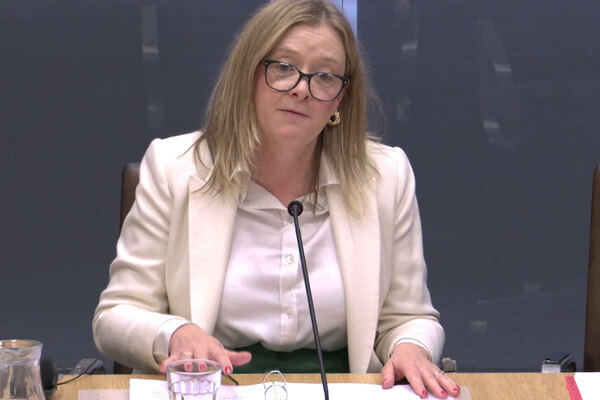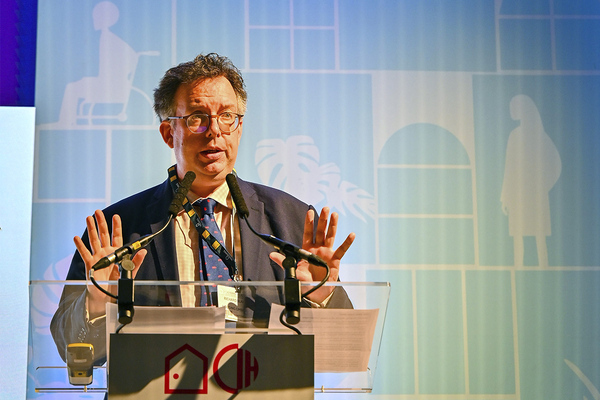You are viewing 1 of your 1 free articles
Regulatory judgements: two G15 landlords breach regulator’s Rent Standard
Two large G15 landlords have been found to have breached the Regulator of Social Housing’s (RSH’s) Rent Standard, it has been revealed in the latest round of regulatory judgements.
In a release today, the RSH confirmed that both Network and Southern had breached the Rent Standard across a four-year period between April 2016 and March 2020.
This was caused by both associations charging inaccurate rents to some tenants as a result of not implementing the 1% rent cut as set by the government under the Welfare Reform and Work Act in 2016.
Under the Welfare Reform and Work Act, social housing providers in England were ordered to reduce rents by 1% each year between 2016 and 2020, blowing a massive hole in the sector’s finances.
However, both landlords did not apply this to some of their Fair Rent properties and were receiving rents in excess of the cap on more than 1,000 homes collectively.
Fair Rent tenancies are tenancies that started before 1989 and are defined as regulated or secure tenancies.
The rent for these properties is often worked out by a rent officer and can be reassessed every two years. All of Network and Southern’s overcharges were as a result of misinterpreting exemptions to its Fair Rent homes.
At Network the regulator found that the 20,000-home landlord had not applied the cut to 425 properties, meaning tenants were overcharged a collective sum of £548,000. In the case of Southern, it was found that the 30,000-home landlord didn’t apply the cut on 677 properties, totalling £1.05m in overcharges.
In April 2020, the rent cut was removed by the government, meaning that landlords could increase rents by the Consumer Price Index (CPI) measure of inflation plus 1% for five years.
At both Southern and Network, the RSH found that the landlords also breached the Rent Standard set in 2020, as the incorrect rent rates between 2016 and 2020 were the basis for the subsequent rent rises.
In the case of Network, the regulator discovered in its 2019-20 Statistical Data Return (SDR) that that the average rent being charged on some of its properties had increased despite the cut being in place.
Network responded by carrying out its own investigation looking into the issues. It concluded that the mistake was due to a misinterpretation of the legislation when calculating the applicable rent increases and the incorrect applications of exemptions on these properties under the Welfare Reform and Work Act 2016 rent rules.
It has now pledged to reimburse and compensate tenants who have been overcharged, engage external advice to take corrective actions to fix future errors, commission an independent review into Network’s rent-setting and improve the auditing and validation of rent-setting and annual charges.
A Network spokesperson said: “As soon as we became aware of this Fair Rents issue, we took prompt action to put things right.
“This involved fully reimbursing and compensating tenants who were affected, writing to them to apologise and explain our mistake.
“We’ve reset these rents so the tenants are now paying the correct amount. We’ve engaged positively with the regulator throughout and have put in place a robust action plan to strengthen and provide enhanced assurance on our approach to rent-setting.”
The issues at Southern were also identified following a review of Southern’s 2019-20 Statistical Data Return by the RSH. Following this, Southern commissioned a series of investigations which revealed the nature and scale of the errors.
It also blamed the mistake on misinterpretations of the legislation and incorrect application of exemptions to Fair Rent properties under the Welfare Reform and Work Act.
It has now fully reimbursed the tenants affected and reset the rents to the right level. It has also put in place an action plan where it has commissioned an independent review into its rent policies and procedures, and clarified lines of accountability and strengthen knowledge in these areas. It has also carried out an internal audit of rent-setting and annual rent charges.
Alan Townshend, chief executive at Southern, said: “The RSH recently confirmed an administrative error by the group involving some Fair Rent tenancies, which was not properly identified during the Regulator’s annual audit of the group’s SDR, which the group submits each year.
“The error first occurred in 2016 following the Welfare Reform and Work Act 2016. It was only identified as incorrect in 2021, after the regulator had signed off this year’s SDR.
“This mistake meant that some tenants with a Fair Rent tenancy were overcharged.
“The group has worked quickly to correct this error and can confirm that all the money that was paid in error has already been refunded to the tenants’ bank accounts or to the appropriate benefits agency.
“We apologise wholeheartedly to everyone who was affected by our mistake, and we are sorry that this situation was not recognised earlier.
“All residents can be assured that all rents are now correct, which has been independently audited and confirmed. We have reviewed all relevant policies and procedures to ensure this situation does not arise in future.”
Elsewhere three other housing associations saw the basis for their viability grade changed, while maintaining their current gradings.
Poplar Harca, which has 9,900 properties in east London, kept its G1/V2 rating following an in-depth assessment. The regulator said it was assured the landlord has an “adequately funded business plan, sufficient security and is forecast to continue to meet its financial covenants”.
However, the regulator warned of financial risks the group must manage to maintain compliance. “Forecast earnings from its core social housing lettings business are not sufficient on their own to cover interest payments over the medium term,” the narrative judgement said. “In addition, increased expenditure on major repairs negatively impacts forecast performance, although elements of this are excluded from loan covenants until 2023.”
Poplar Harca’s exposure to the housing market was also highlighted. “Open market sales, delivered primarily through joint ventures, represent a large proportion of Poplar Harca’s overall business activity and introduce a significant exposure to the housing market, forecast to peak in 2023,” the judgement said. “In addition, Poplar Harca is reliant on fixed-asset disposals and shared ownership sales to support its liquidity position.”
Raven Housing Trust, which operates around 6,300 homes in South East England, also maintained its G1/V2 rating as the regulator said it was assured its financial plans are consistent with and support its financial strategy.
But the regulator flagged that Raven’s “significant development and sales programme exposes it to housing market volatility and potential reductions in income”. The judgement added: “Increased forecast expenditure on major repairs and maintenance weakens Raven’s interest cover position and covenant headroom, which reduces its capacity to deal with adverse events.”
Jonathan Higgs, chief executive at Raven, said: “We welcome the regulator reaffirming that Raven remains compliant with their expectations, and that we have the financial capacity to deal with adverse scenarios.
“Demands on the sector have rarely been greater, and Raven continues to invest to meet those demands.
“We are determined to make our financial capacity work as hard as possible for the benefit of our residents and their communities.
“The regulator recognises that we are in a position of financial strength to respond to the challenges the sector faces over the coming months, and that we have financial plans in place that are consistent with, and support, our financial strategy.”
Octavia Housing, which operates around 5,200 properties across London, kept its G1/V2 rating as the regulator said it was assured its financial plans are “consistent with, and support, its financial strategy”.
However, the regulator said the group has “material financial risks” that it needs to manage. “An increase in debt and significant building safety costs have negatively impacted financial performance, and there is potential for forecast costs to increase once work to determine stock investment needs has been completed,” the regulatory judgement said.
“In addition, the plan is reliant on the successful delivery of further efficiencies from the provider’s modernisation programme.”
Sandra Skeete, chief executive at Octavia, said: “We are pleased that the regulator continues to recognise the effective governance of the organisation, as well as our capacity to deal with the ongoing costs associated with building maintenance and safety works while we continue to deliver much-needed new affordable homes in central and west London.”
“This grading also recognises the regulator’s confidence in our strengthened stress-testing and risk management approach, and in our ability to deal with a range of adverse scenarios.”
“Octavia has stayed true to its original social purpose for over 150 years. We continue to offer genuinely affordable rents to people on the lowest incomes in some of the most expensive parts of the capital and we remain committed to supporting our communities in these challenging times.”
The regulator also published 23 strapline regulatory judgements confirming existing grades. Among them were 33,600-home landlord Stonewater, which maintained its G1/V1 status, Hertfordshire-based Hightown Housing Association which kept its G1/V1 rating after previously being upgraded for governance in March, and 5,000-home Gloucester City Homes, which maintained its G1/V2 rating.
Sign up for our regulation and legal newsletter
Already have an account? Click here to manage your newsletters












